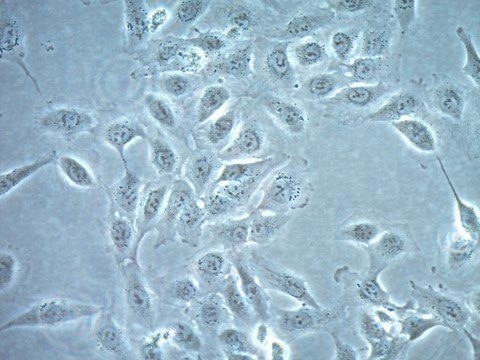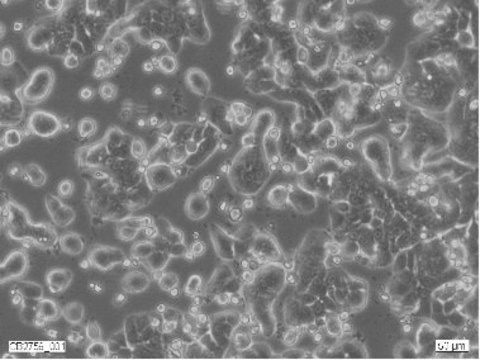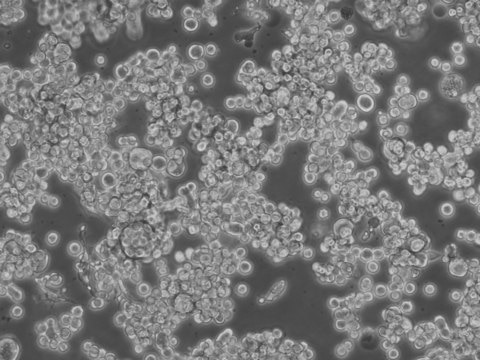Recommended Products
product name
8505C, 94090184
biological source
human thyroid
growth mode
Adherent
karyotype
Not specified
morphology
Epithelial
products
Not specified
receptors
Not specified
technique(s)
cell culture | mammalian: suitable
relevant disease(s)
cancer
shipped in
dry ice
storage temp.
−196°C
Related Categories
Cell Line Origin
Human thyroid carcinoma, undifferentiated.
Cell Line Description
Established from undifferentiated thyroid carcinomas of a 78 year old female patient. Pathologically this primary carcinoma tissue contained residual well differentiated components suggesting well differentiated to undifferentiated carcinoma progression. Tumour suppresser genes p53, Rb, APC and MCC were analysed and sequence analysis confirmed a C:G to G:C transversion at the first base of p53 gene codon 248. Polymerase chain reaction-loss of heterozygosity assays confirmed allelic deletion of p53 gene. Loss of heterozygosity of tumour suppresser genes was not observed.
Application
8505C cell line has been used to study the impact of synthetic manipulation of expression of microRNAs miR-25 and miR-222 in benign and malignant thyroid cells. It has also been used to determine the induction of pluripotency markers by mitogen activated protein kinase (MEK) inhibition.
Culture Medium
EMEM (HBSS) + 2mM Glutamine + 1% Non Essential Amino Acids (NEAA) + 10% Foetal Bovine Serum (FBS).
Subculture Routine
Split sub-confluent cultures (70-80%) 1:3 to 1:6 i.e. seeding at 2-4 x 10,000 cells/cm2 using 0.25% trypsin/EDTA; 5% CO2; 37°C. Doubling time is 36 hours. Saturation density at confluency is 1x100,000 cells/cm2.
Other Notes
Additional freight & handling charges may be applicable for Asia-Pacific shipments. Please check with your local Customer Service representative for more information.
Certificates of Analysis (COA)
Search for Certificates of Analysis (COA) by entering the products Lot/Batch Number. Lot and Batch Numbers can be found on a product’s label following the words ‘Lot’ or ‘Batch’.
Already Own This Product?
Find documentation for the products that you have recently purchased in the Document Library.
Articles
DNA, RNA, cDNA derived from ECACC mammalian cell lines allow screening for genes or expression patterns to identify lines most suitable for specific research.
Our team of scientists has experience in all areas of research including Life Science, Material Science, Chemical Synthesis, Chromatography, Analytical and many others.
Contact Technical Service


